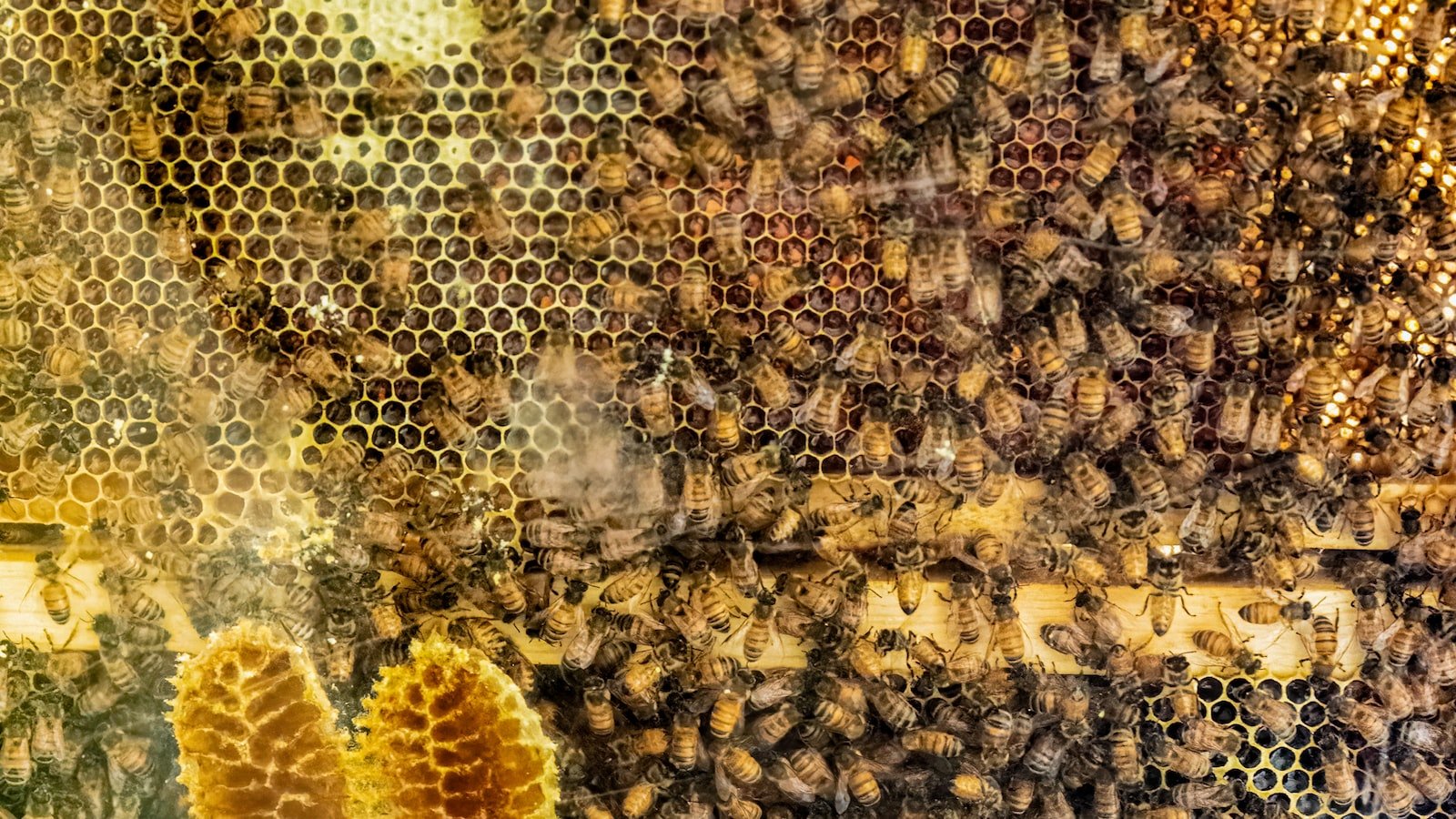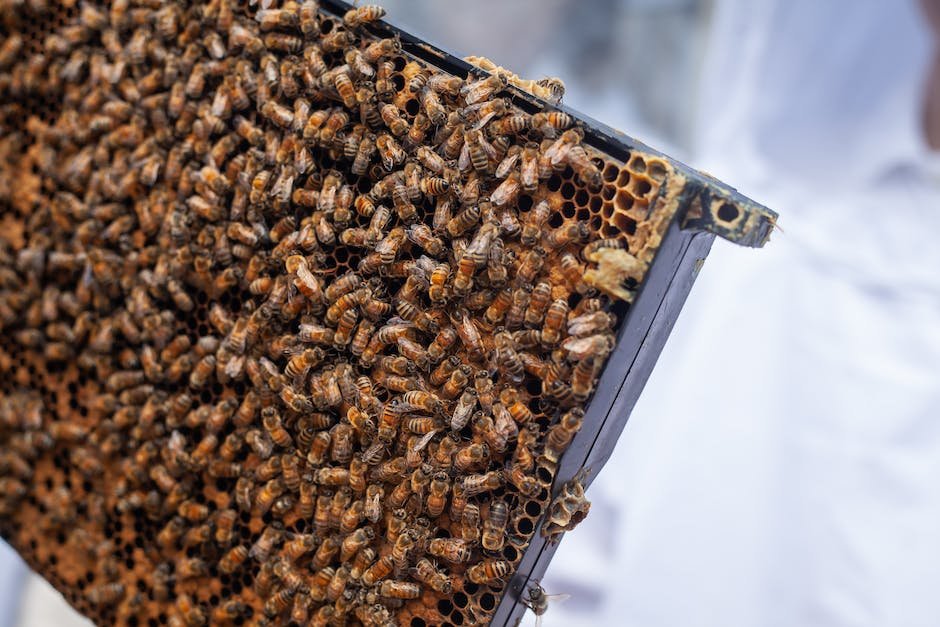As dawn breaks and the first rays of the sun grace the petals of blooming flowers, a symphony hums through the air. Bees, nature’s diligent pollinators, embark on their journey, traversing vast meadows and bustling gardens in search of nectar and pollen. While these industrious creatures rely on the bountiful offerings of the natural world, there are times when their sustenance may dwindle, leaving them vulnerable. Thus, supplemental feeding comes forth as an invaluable assistance, extending a helping hand to these winged wonders in times of scarcity. Beyond merely preventing starvation, the benefits of this practice transcend, nurturing the lives of bees while ensuring ecological harmony. In this article, we delve into the intricate world of supplemental feeding for bees, exploring the extent of its advantages and the vital role it plays in preserving these extraordinary pollinators.
Table of Contents
- The Importance of Supplemental Feeding in Beekeeping
- Nourishing Bees: Ensuring Healthy Pollinators and Thriving Hives
- Enhancing Bee Health: Exploring the Benefits of Supplemental Feeding
- Strategies for Successful Supplemental Feeding in Beekeeping
- Maximizing Bee Productivity: Best Practices for Supplemental Feeding
- Q&A
- Key Takeaways

The Importance of Supplemental Feeding in Beekeeping
The Benefits of Supplemental Feeding for Bees
Beekeeping is a rewarding and essential practice that supports the survival and well-being of these remarkable pollinators. One crucial aspect of successful beekeeping is providing supplemental feeding to your colonies when natural sources of nectar and pollen are limited or scarce. Supplemental feeding plays a vital role in ensuring the health and productivity of your bee colonies, especially during times of drought, early spring, or winter.
Here are a few reasons why supplemental feeding is crucial:
- Survival during scarcity: When nectar and pollen sources are lacking, bees depend on supplemental feeding to sustain themselves. This is particularly important in urban areas or during droughts when flower availability may be limited. Providing them with a nutritious food source helps prevent starvation and enables them to thrive.
- Supporting colony growth: During early spring, colonies need to rapidly expand their population to take advantage of the upcoming flowering season. By offering supplementary food, you supply the bees with the energy and nutrients required to raise brood and increase their numbers, leading to stronger and more productive colonies.
- Increase honey production: A well-fed colony is more likely to produce surplus honey, and supplemental feeding can play a significant role in achieving this. When natural forage is insufficient, providing a supplemental sugar syrup stimulates the bees’ honey production, allowing you to enjoy a bountiful harvest.
Best Practices for Supplemental Feeding:
When implementing supplemental feeding strategies, it’s crucial to follow a few key guidelines:
- Use high-quality feed: Ensure the supplementary food you provide is of excellent quality. Choose commercial bee feeds or prepare your own using reliable recipes and ingredients.
- Monitor feed consumption: Regularly inspect the feeders to gauge the bees’ consumption. Adjust the amount of food provided accordingly to prevent overfeeding or waste.
- Equip with proper feeders: There are various feeder types available, such as entrance feeders, division board feeders, or top feeders. Choose a feeder suitable for your specific needs and install it correctly to minimize bee drowning and contamination risks.
- Timing is key: Be mindful of when to introduce supplemental feeding. It’s essential to provide food before the bees’ natural food sources are significantly reduced to ensure a smooth transition and prevent hunger.
Remember, supplemental feeding is just one aspect of beekeeping management and should be used as a supplement to natural forage, not a long-term dependency. By understanding the importance of supplemental feeding and implementing best practices, you can support your bee colonies’ health and maximize their productivity, ultimately contributing to the overall well-being of these vital pollinators.

Nourishing Bees: Ensuring Healthy Pollinators and Thriving Hives
Bees play a vital role in our ecosystem as pollinators, making their health and well-being crucial for a thriving environment. As caretakers of these incredible creatures, it is essential that we implement strategies to ensure their nourishment and support their hives. Here are some ways we can act to promote healthy pollinators:
- Plant pollinator-friendly gardens: By creating gardens filled with flowers rich in nectar and pollen, we provide bees with a diverse and nutritious food source. Consider incorporating native plants and a variety of blooming periods to extend the foraging season.
- Avoid pesticides: Chemical pesticides can have devastating effects on bees and their hives. Opt for natural pest control methods, such as introducing beneficial insects, using companion plants, or practicing crop rotation.
- Provide water sources: Bees require water to prevent dehydration, especially during hot summer months. Place shallow dishes with fresh water in your garden, ideally with floating objects to provide them a landing platform.
Educating ourselves and others about the importance of nurturing bees is essential for their survival. Let us all take a step towards nourishing our pollinators and ensuring the health and prosperity of their hives.

Enhancing Bee Health: Exploring the Benefits of Supplemental Feeding
When it comes to bee health, ensuring proper nutrition is of utmost importance. Supplemental feeding has emerged as an essential practice among beekeepers to enhance the well-being of their beloved pollinators. By providing additional nectar or pollen substitutes, beekeepers can significantly improve hive strength, immunity, and overall productivity.
There are several noteworthy benefits of supplemental feeding for bees:
- Increased brood production: By offering a supplemental feeding source, beekeepers promote a consistent and abundant food supply for their colonies. This fosters optimal conditions for the queen to lay eggs and increases the number of brood produced. Ultimately, this leads to a healthier and more populous hive.
- Enhanced honey production: Well-nourished bees are known to produce more honey. Supplemental feeding provides bees with the necessary nutrients to generate an ample honey surplus, benefiting both the beekeeper and the thriving hive.
- Strengthened immune system: A balanced diet plays a crucial role in supporting a bee’s immune system. By offering supplemental feeding options enriched with essential vitamins and minerals, beekeepers can bolster their colonies’ immunity, making them less susceptible to diseases and pests.
It is important for beekeepers to note that while supplemental feeding can significantly improve bee health, it should always be used as a complementary practice to natural foraging. Bees are highly adapted to collect nectar and pollen from a diverse range of flowers, which provides them with a rich and varied diet. Thus, it is crucial to maintain a balance between supplemental feeding and the natural resources available in the environment.
Strategies for Successful Supplemental Feeding in Beekeeping
Understanding the Importance of Supplemental Feeding
Supplemental feeding plays a vital role in beekeeping, especially during periods when natural resources may be scarce. By providing additional food to your bees, you ensure their health and productivity. However, it’s crucial to have a solid strategy in place for successful supplemental feeding. Here are some effective strategies to help you navigate this essential aspect of beekeeping:
- Assessing the Nutritional Needs: Before initiating supplemental feeding, it’s important to assess the nutritional needs of your beehive. Different seasons and environmental conditions require varying levels of supplementing. Consider factors such as nectar flows, floral resources, and weather patterns to determine when and how much supplementary feed is required.
- Choosing the Right Feed: Bees require a balanced diet that includes carbohydrates, proteins, lipids, and vitamins. Opt for commercially available bee feeds or prepare your own, ensuring it meets the nutritional requirements of your bees. Sugar syrup, pollen substitutes, and fondant are commonly used as supplemental feed options.
- Feeding Techniques: There are various methods to provide supplemental feed to your bees. Some widely used techniques include top feeding, frame feeder, or entrance feeder. Each method has its advantages and disadvantages, so choose the one that suits your hive setup and colony’s needs. Regularly monitor feed levels and adjust accordingly.
- Monitoring and Observation: Once you begin supplemental feeding, it’s crucial to monitor your bees’ response and overall health. Regularly inspect the hive for signs of improved brood development, increased stored food, or any potential issues. Note any changes in behavior, such as aggressive behavior or a decline in colony strength, as it may indicate a need to reevaluate your feeding approach.
Remember, successful supplemental feeding is a dynamic process that requires attention to detail and adaptation based on the specific needs of your apiary. By implementing these strategies and closely observing your bees, you’ll ensure their well-being and aid their productivity throughout the beekeeping season.
Maximizing Bee Productivity: Best Practices for Supplemental Feeding
Beekeepers are always looking for ways to maximize bee productivity and ensure their hives are healthy and thriving. One effective method is through supplemental feeding, which involves providing additional food sources to the bees when natural nectar and pollen may be scarce. By implementing best practices for supplemental feeding, beekeepers can help their colonies stay strong and productive.
To get started, it’s important to choose the right type of supplemental feed. This can include sugar syrup, pollen patties, or even protein supplements. These feed options provide the necessary nutrients that bees need to survive and thrive. It’s crucial to ensure that the feed is of high quality and free from pesticides or contaminants that could harm the bees.
When feeding your bees, a key aspect is timing. Bees should be provided with supplemental feed during times when natural forage is limited, such as droughts or during the winter months. Regular monitoring of the hives will help determine when supplemental feeding is necessary. Additionally, it’s important to check the feed levels regularly and refill as needed to ensure a consistent food source for the bees.
Another best practice is to monitor the health of the bees while supplementing their diet. Regularly inspect the hives for signs of disease or pest infestations, as these can impact bee productivity. By catching any issues early on, beekeepers can take appropriate measures to prevent the spread of disease and maintain the health of their colonies.
It’s also crucial to provide the bees with ample water sources near the hives, as they need water for various activities within the hive. Including a water source close by can enhance the effectiveness of supplemental feeding and contribute to the overall well-being of the bees.
In summary, maximizing bee productivity through supplemental feeding requires selecting the right feed, timing the feedings appropriately, monitoring hive health, and providing adequate water sources. By following these best practices, beekeepers can support their colonies and help them thrive, ensuring a productive and sustainable beekeeping operation.
Q&A
Q: Can supplemental feeding benefit bees?
A: Yes, supplemental feeding can provide essential nutrients and energy for bees during times of nectar scarcity or when they are unable to gather enough food on their own.
Q: How does supplemental feeding assist bees during times of scarcity?
A: Supplemental feeding helps bees maintain their energy levels and strengthens their immune systems, ensuring their survival and helping them withstand the challenges of a shortage of natural food sources.
Q: Is there a specific time when supplemental feeding is most beneficial?
A: Supplemental feeding is particularly valuable during periods when bees have limited access to nectar, such as in late winter or early spring when flowering plants are scarce.
Q: What type of food is typically used for supplemental feeding?
A: Various types of sugar solutions, including water mixed with table sugar or commercial bee feed made from natural ingredients, are commonly used for supplemental feeding.
Q: Are there any risks associated with supplemental feeding?
A: While supplemental feeding can be beneficial in times of need, improper feeding practices or feeding low-quality food sources may lead to health issues or imbalances in the bee colony, so it is essential to follow recommended guidelines.
Q: Can supplemental feeding contribute to honey production?
A: Yes, by providing bees with an additional food source, supplemental feeding can help the colony expand, produce more honey, and support overall hive health.
Q: Are there any environmental concerns with supplemental feeding?
A: While supplemental feeding is generally safe when done correctly, it is important to remember that natural food sources are vital for the long-term health and diversity of bee populations, and efforts should be made to protect and conserve their natural habitats.
Q: How does supplemental feeding benefit beekeepers?
A: By providing supplemental food, beekeepers can help maintain the health and productivity of their colonies, especially during periods of nectar scarcity, ensuring the success of their beekeeping endeavors.
Key Takeaways
As we conclude our exploration into the buzzing world of bees and their newfound culinary delights, it is evident that supplemental feeding holds an array of benefits for these humble pollinators. Through this nourishing journey, we have witnessed the sheer resilience and adaptability of these tiny creatures, as they embrace the sweet offerings from our fingertips.
Undoubtedly, the advantages of providing supplemental feed to bees are not limited to merely filling their tiny bellies. This act of benevolence goes beyond the surface, diving deep into the interconnected web of ecological balance, sustaining not only the bee populations but also our very own existence.
From the vibrant fields of blooming flowers, we have voyaged into the realms of urban landscapes where gardens and concrete coexist, foraging for honey treasures. It is here that supplemental feeding steps in, bridging the gap between natural habitats and concrete jungles, ensuring no bee goes hungry amidst the urban chaos.
As we watch these intricate winged creatures darting from blossom to blossom, it becomes clear that nourishing them through supplemental feeding indirectly supports the reproduction of plants, bestowing upon us the gift of thriving ecosystems. The harmonious melody of chirping birds, the vibrant colors of blossoms, and the blissful fragrance of nature all dance in tune with the tireless efforts of our buzzing friends.
In a world where bees face numerous challenges – habitat loss, pesticide exposure, and climate change – supplemental feeding acts as a lifeline, a beacon of hope for their survival. By offering a helping hand, we embrace our role as stewards of the earth, ensuring the sustenance of these tireless workers who diligently contribute to the pollination of our food crops and the preservation of biodiversity.
Just as bees symbiotically transform nectar into golden honey, our act of supplemental feeding transforms our world into one filled with abundance, harmony, and gratitude. It is a testament to our willingness to recognize the intricate connection we share with the natural world and our dedication to preserving it.
So let us continue to spread the sweetness and compassion that comes with supplemental feeding, enlightening others about the innumerable benefits it brings. In doing so, we become allies of the bees, guardians of our planet, and architects of a brighter future where these remarkable creatures continue to thrive, forever enchanting us with their gentle hum and tireless endeavor.
As an affiliate, my content may feature links to products I personally use and recommend. By taking action, like subscribing or making a purchase, you’ll be supporting my work and fueling my taco cravings at the same time. Win-win, right?
Want to read more? Check out our Affiliate Disclosure page.